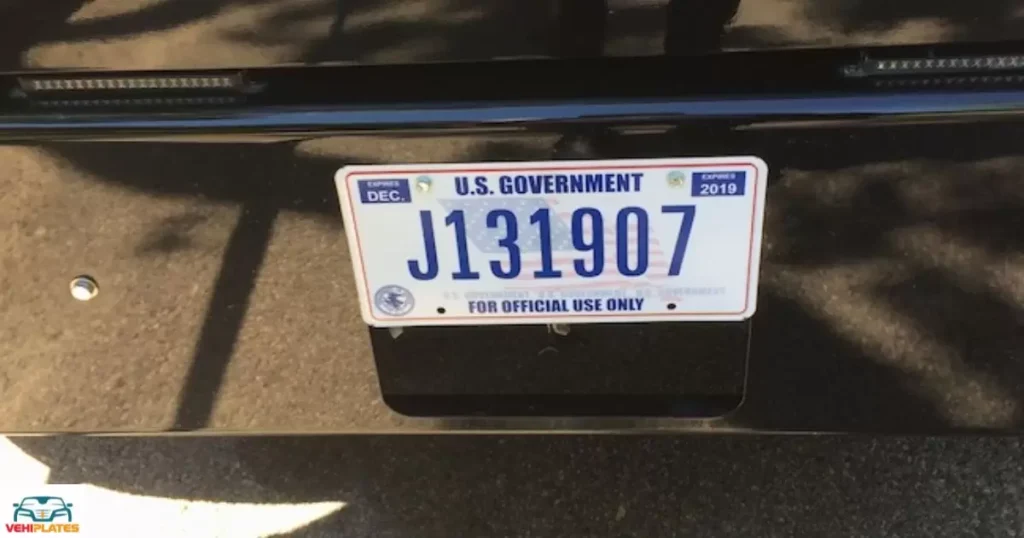A bent license plate refers to a vehicle registration plate that has been physically deformed or distorted from its original shape. This can occur due to various reasons such as accidents, intentional tampering, or wear and tear over time.
“Is a bent license plate illegal?” This question often sparks curiosity among drivers and law enforcement alike. The legality of a bent license plate hinges on several factors, including the extent of the damage and the regulations set forth by local authorities.
In many jurisdictions, driving with a bent license plate can indeed be illegal. Regulations typically require license plates to be clearly visible and legible at all times. A bent plate may violate these requirements, leading to penalties for the vehicle owner.
The Legality of Bent License Plates
The legality of bent license plates hinges on their compliance with local regulations. In many jurisdictions, driving with a bent license plate is considered illegal as it may compromise plate visibility and readability.
Law enforcement agencies typically require license plates to be in a clear, unaltered state for identification purposes. Thus, vehicle owners should promptly address any damage to their license plates to ensure compliance with the law.
Understanding License Plate Regulations
Understanding license plate regulations is crucial for every vehicle owner. These regulations dictate the proper placement, visibility, and condition of license plates on vehicles.
Compliance with these regulations ensures that license plates are easily readable by law enforcement officers and automated systems. Failure to adhere to these regulations can result in fines or penalties for the vehicle owner.
Risks of Driving with a Bent License Plate

- Driving with a bent license plate poses significant risks to both the driver and other road users.
- Reduced plate visibility can make it challenging for law enforcement to identify the vehicle in case of emergencies or traffic violations.
- Automated systems, such as toll booths or red-light cameras, may fail to accurately capture the vehicle’s information, potentially leading to fines or legal consequences.
- A bent license plate might signal neglect of vehicle maintenance, raising concerns about the overall safety and reliability of the vehicle.
Impact on Plate Visibility
A bent license plate can significantly impact its visibility to law enforcement officers and automated systems. The distortion caused by bending can obscure characters, making it difficult to read the plate from a distance.
Poor visibility increases the likelihood of misidentification and can lead to legal issues for the vehicle owner. Maintaining a clear and legible license plate is crucial to ensure compliance with regulations and avoid potential penalties.
Enforcement Actions for Bent License Plates
| Enforcement Action | Description |
| Traffic Citation | Vehicle owners may receive a citation for driving with a bent |
| license plate, especially if it impairs readability. | |
| Vehicle Inspection | Law enforcement may require vehicle inspection to rectify the |
| issue of a bent license plate. | |
| Fine | Fines can be imposed on drivers found with non-compliant |
| license plates, including those that are bent or damaged. |
Enforcement actions for bent license plates vary by jurisdiction and may include fines, citations, or mandatory vehicle inspections to rectify the issue promptly. It’s essential for drivers to address any damage to their license plates to avoid legal consequences.
Consequences of Ignoring License Plate Damage
Ignoring license plate damage can lead to significant consequences. A bent or damaged license plate may not only violate legal requirements but also impede the identification of the vehicle.
This could result in fines, penalties, or even legal action against the vehicle owner. A damaged license plate may hinder the ability of law enforcement to respond effectively in cases of accidents or emergencies.
Importance of Maintaining License Plate Integrity

- Maintaining license plate integrity is crucial for ensuring legal compliance while driving.
- A damaged or bent license plate can impede the ability of law enforcement and automated systems to identify a vehicle.
- By keeping license plates in good condition, drivers help maintain road safety and facilitate law enforcement efforts.
- Regular inspection and prompt repair of any damage to license plates contribute to smoother traffic management and compliance with regulations.
Tips for Rectifying Bent License Plates
When dealing with a bent license plate, there are a few simple tips to help rectify the issue. First, try gently bending the plate back into shape using a pair of pliers or a similar tool, being careful not to further damage the plate.
If the bending is severe or the plate is made of rigid material, consider replacing it altogether. Ensure that the plate is securely attached to the vehicle to prevent further bending or detachment while driving.
Legal Obligations Regarding License Plate Condition
- Vehicle owners are required to maintain license plates in a readable and undamaged state, including knowing how to remove a license plate frame when necessary.
- Regulations mandate that plates must be clearly visible and legible from a reasonable distance.
- Any alterations or damage to license plates that impede readability can result in legal repercussions.
- It is the responsibility of the vehicle owner to promptly repair or replace a bent or damaged license plate to comply with legal requirements.
FAQ’s
Can I drive with a bent license plate?
Driving with a bent license plate can be illegal in many jurisdictions due to regulations requiring plates to be clear and legible.
What are the consequences of having a bent license plate?
Consequences may include fines, citations, or other legal penalties for failing to maintain a properly readable license plate.
How can a bent license plate affect visibility?
A bent plate may obscure or distort the characters on the plate, making it difficult for law enforcement or automated systems to read the information.
Conclusion
Driving with a bent license plate may seem minor, but it could lead to legal trouble. It’s important to remember that license plates must always be clear and readable. Even a small bend can make it hard for authorities to identify your vehicle.
To avoid fines or citations, ensure your license plate is in good condition at all times. So, straighten out any bends and stay on the right side of the law.










